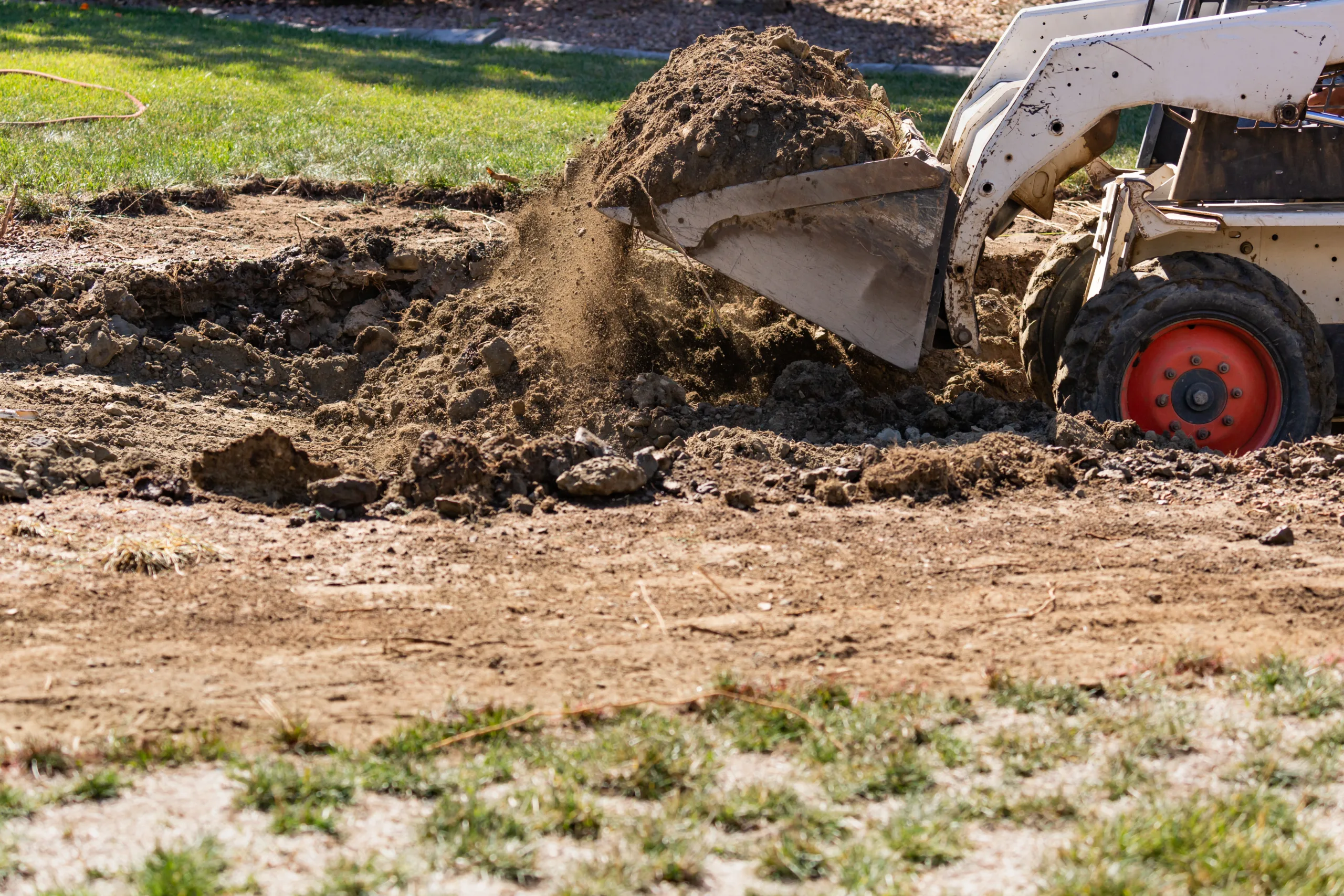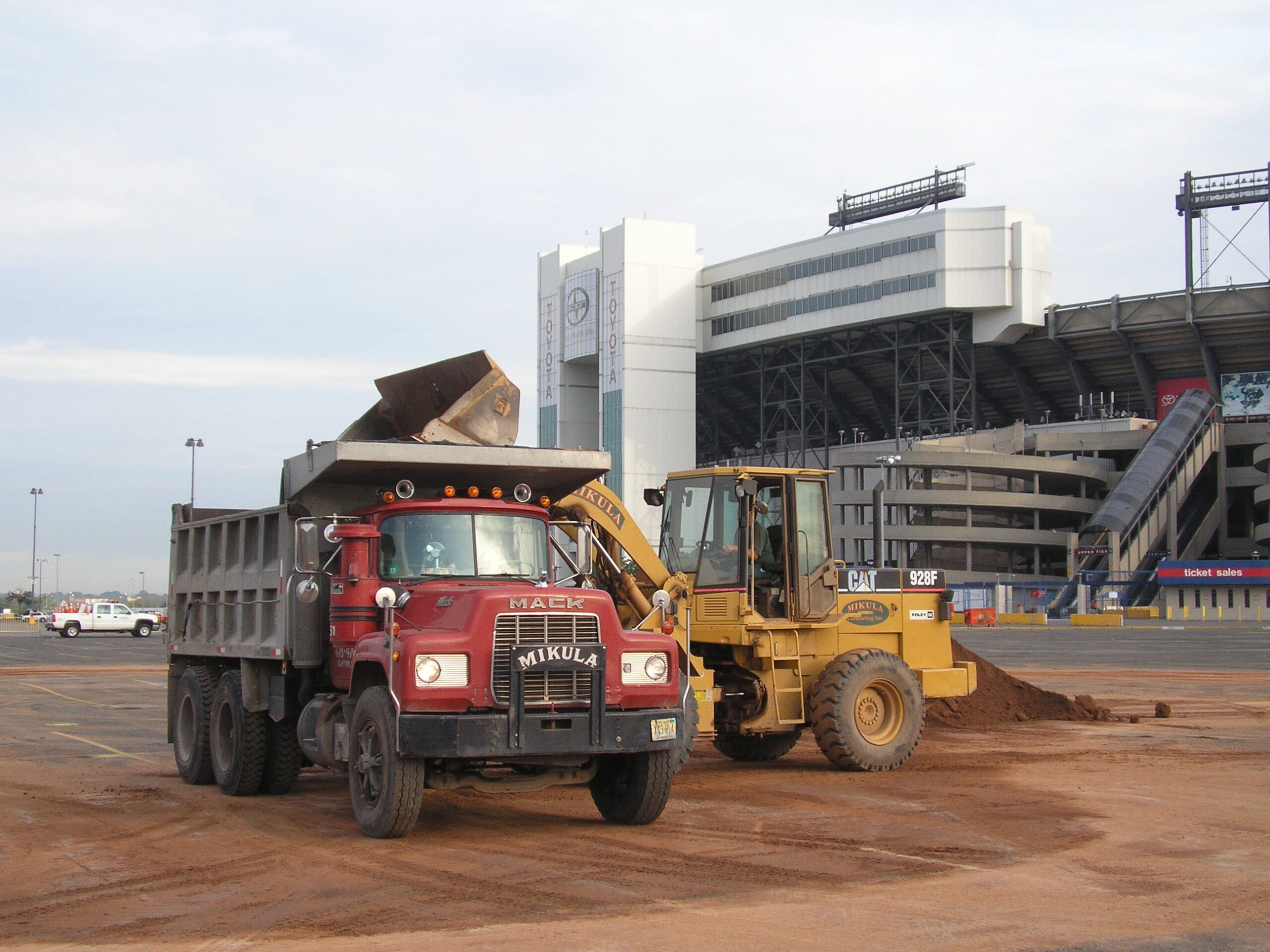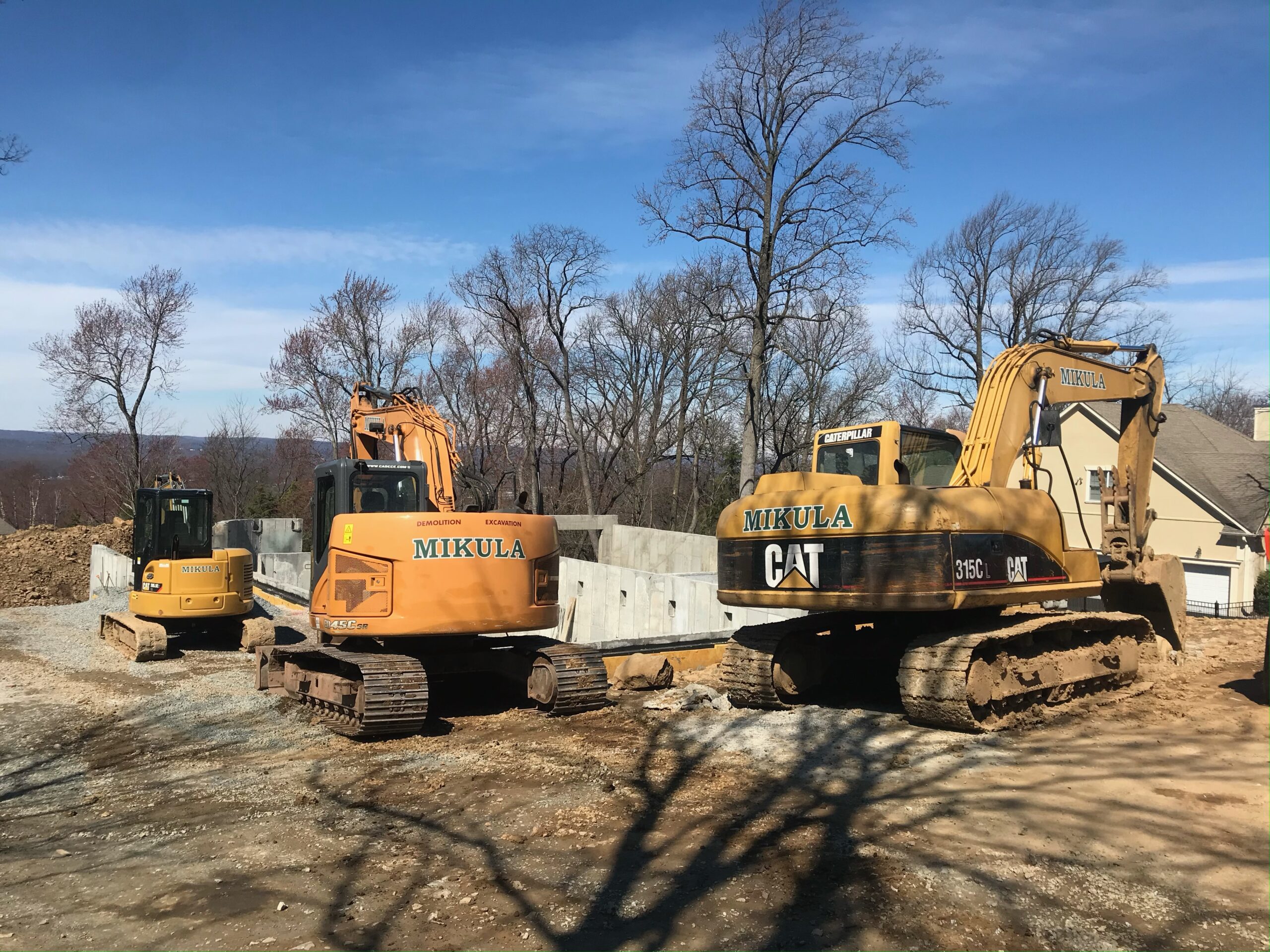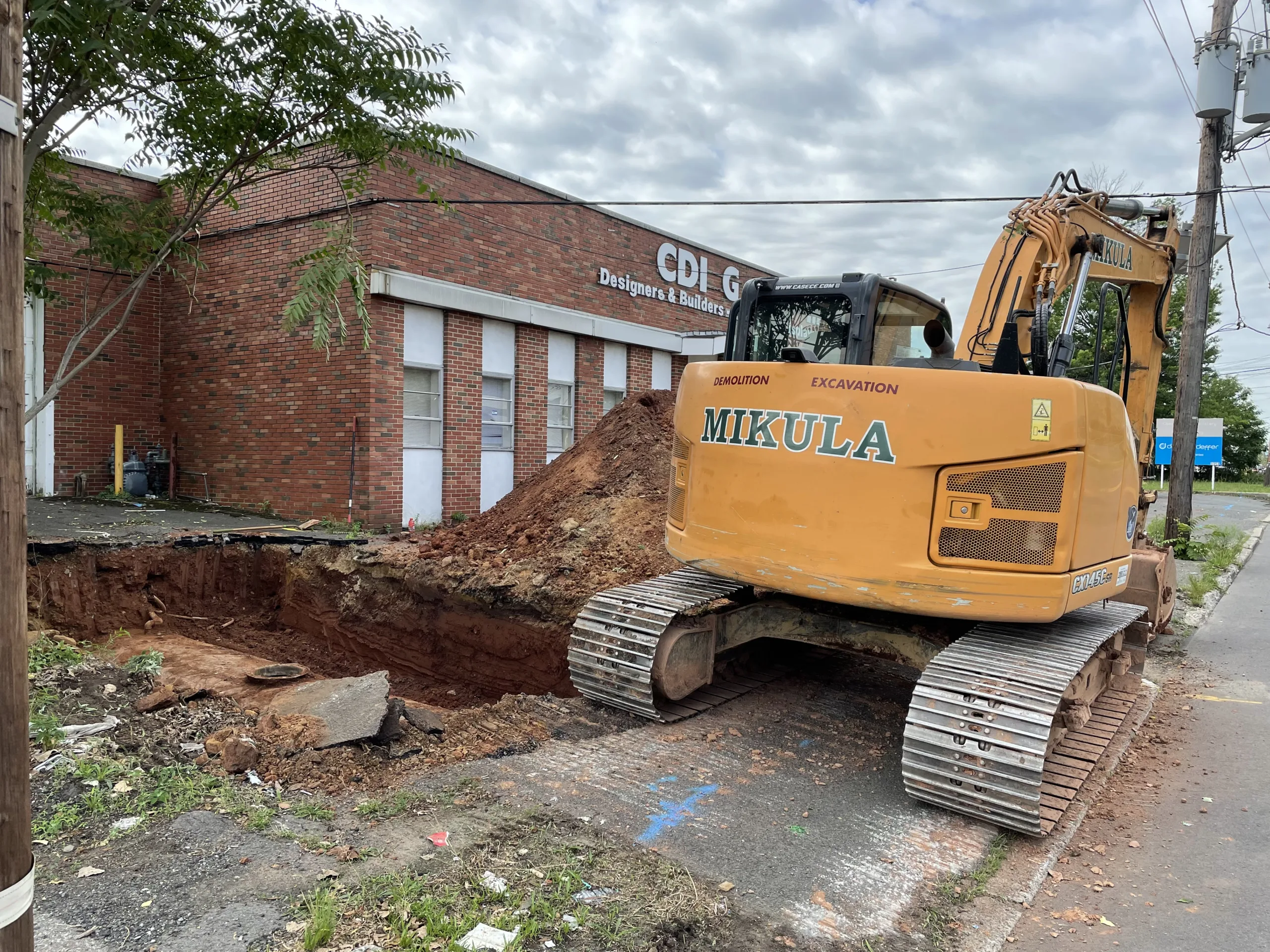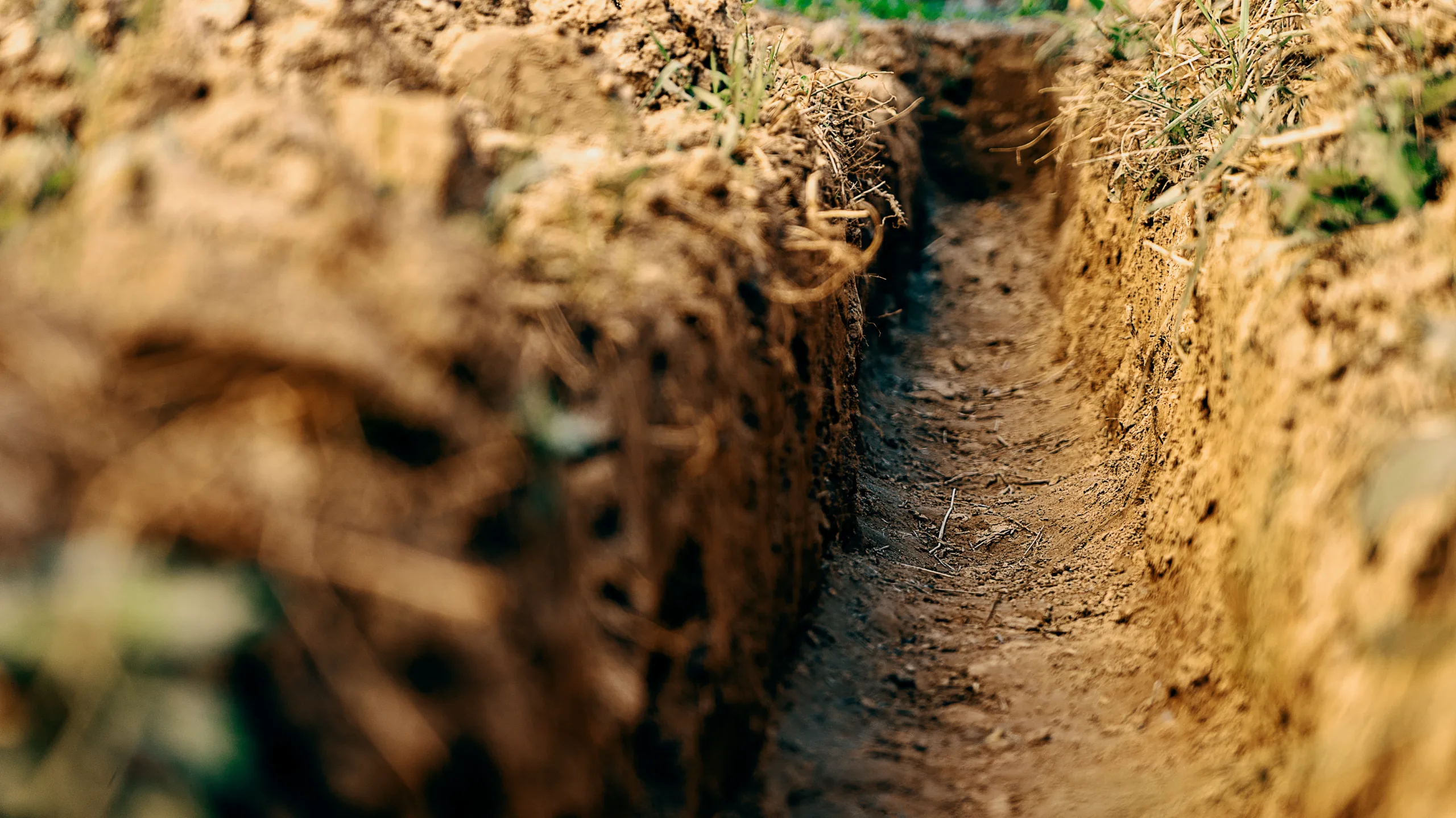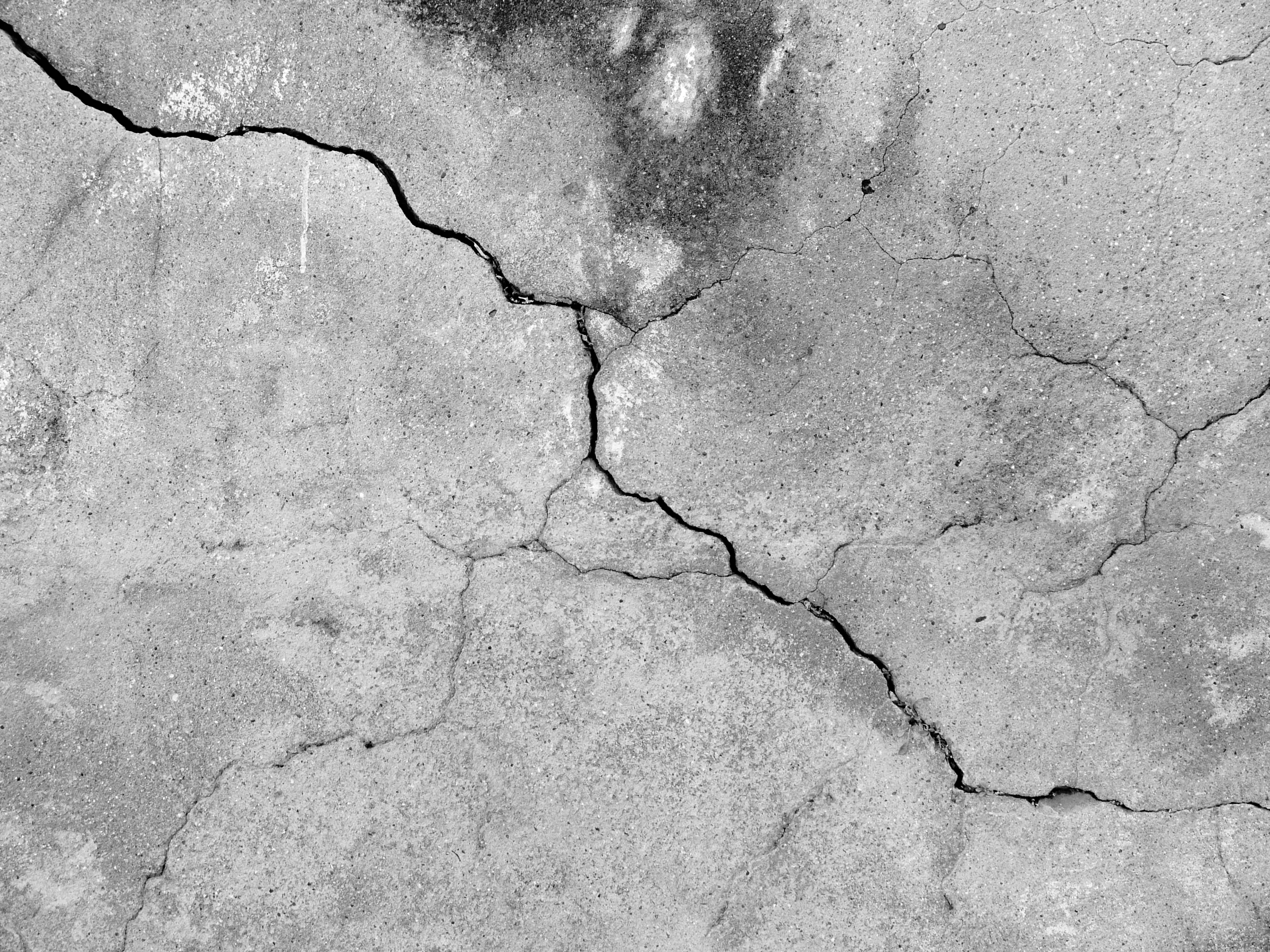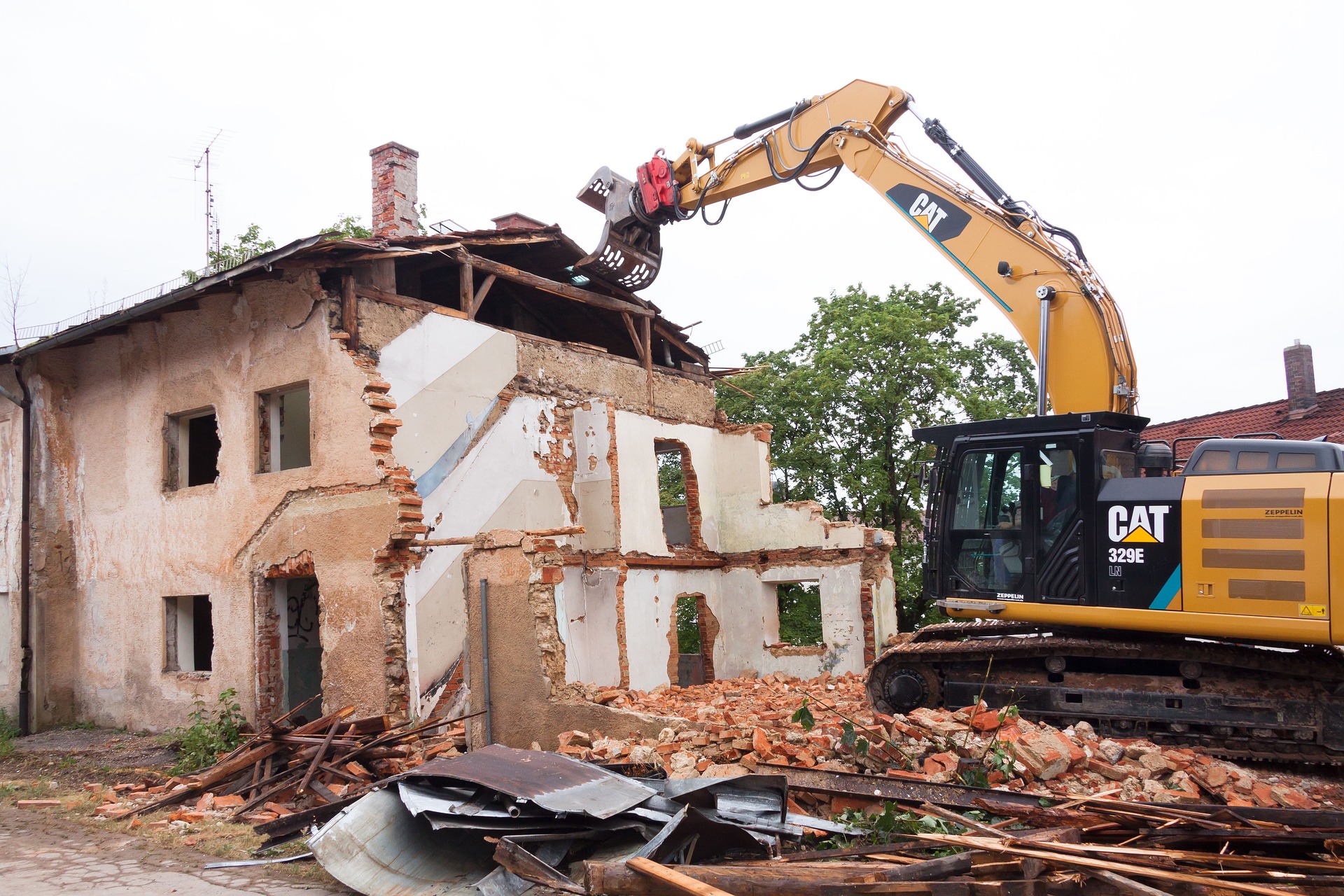How Excavation Contractors and Environmental Firms Work Together
When you are hiring an excavation contractor, you are getting access to more than a team who will move the dirt around on your construction project. A professional excavation contractor works hand-in-hand with many other industry experts and has local connections to take care of anything that might need to be addressed on your site.
The truth is that excavation can impact the surrounding environment, which is why specific construction practices must always be followed. In the planning phases, it’s necessary to evaluate the environmental impact, and also ensure the construction process includes strategies to reduce your environmental footprint.
Because of this, excavation contractors often collaborate with environmental firms to ensure the successful completion of the project. At Mikula Contracting, we are proactive about communication and strategy, ensuring regulatory compliance every step of the way.
At Mikula, we have years of experience with excavation, soil management, and environmental protection. If you need these services, then we invite you to reach out to our knowledgeable team to schedule a consultation so we can discuss your project.
When Does an Environmental Firm Need to Get Involved?
How do you know if you need to be working with both an excavation contractor and an environmental firm? Here are a few reasons why it might make sense to have this collaboration in the construction process:
- Site assessment: An environmental firm can be a valuable resource when it’s time to do the initial impact assessments. Testing is performed to evaluate any potential contamination, ecological concerns, or regulatory requirements – which must be completed before starting the excavation.
- Monitoring: As the excavation moves forward, the environmental team can stay involved by offering ongoing monitoring of the air, water, and soil quality. If any negative environmental impacts are detected, then early intervention can be done to avoid bigger (and more costly) interventions in the future.
- Remediation: If soil testing uncovers contaminations in the soil, then the environmental firm can work with the excavation team to implement a remediation plan before construction begins.
An environmental firm can be a great resource for property owners and construction companies. These steps ensure that you are proactive about various issues that can occur, including the management of sediment control and erosion control.
Key Areas of Collaboration Between Excavation Contractors and Environmental Firms
Excavating contractors collaborate with environmental firms starting in the planning stages. When construction plans are being developed, including excavation and building, it’s necessary to evaluate the anticipated impact on the environment. Sometimes, small changes in the construction plans can make a big difference in ensuring compliance and safety for everyone involved. Risk management is always a priority, to identify and mitigate any potential risks that might be related to soil contamination, ecological issues, or erosion.
Also, this collaboration ensures that you are maintaining all best practices, including environmentally friendly excavation services. We maintain open communication every step of the way, to ensure the ideal outcome for your project.
Benefits of Working with an Excavation Contractor with Established Partnerships
When you are preparing for your project, it can be a hassle to hire multiple contractors and coordinate communication between everyone involved. Rest assured knowing that you don’t have to be in the project management position. Instead, a better solution is to hire an excavation contractor that already has established partnerships in place. They will be able to make recommendations and provide introductions to a general contractor who can help manage all aspects of the project.
Hiring the right excavation contractor allows you to tap into a full range of specialists and experts you might need in the construction industry. Your excavation contractor helps to streamline the processes for everything from soil testing to environmental impact assessments, sourcing building materials, and more.
Overall, you can save money when you are working with an excavation contractor that has established partnerships. The project coordination is more efficient and there are often shared resources that can help.
Finally, these established connections help to reduce the risk on site. You can avoid potential environmental violations and costly delays by detecting environmental issues in the earliest stages. This proactive approach is essential to keeping your project on track (and on budget).
Work With an Established New Jersey Excavation Contractor
When you need to hire an excavation contractor, reach out to a local team with a solid reputation. Mikula is here to help every step of the way. We bring local expertise to your project. Our team understands the specific environmental regulations and challenges here in New Jersey.
Our proven track record speaks to the quality of services you can expect from Mikula. We collaborate with other industry experts, including environmental firms, to deliver results that you can trust. When you are ready for more information, schedule a complimentary consultation with our team. We’re here to help with both commercial and residential projects.
The Importance of Grading Your Yard for Proper Drainage
Hiring a drainage contractor is important to ensure that you have proper grading and drainage for your yard. The slope of your yard manages the direction and way water moves, with the goal of directing the water away from your home’s foundation – which is essential to prevent water damage.
The reality is that water damage is not only an inconvenience, but it can be quite costly. If your foundation is damaged by water, it can be a threat to the structural integrity of your home. Poor drainage leads to other issues as well, including soil erosion, a soggy lawn, and landscaping damage.
So, it’s a good investment to take a proactive approach by hiring a drainage contractor to minimize the risk of these issues. When your yard is well-graded, it helps you maintain a comfortable home environment while ensuring the longevity of your real estate at the same time. Our team at Mikula is here to help when you need to hire an excavation or drainage contractor.
What Does it Mean to Grade Your Yard?
When you are excavating to improve your yard grade, it means that you are adjusting the slope of the land to control the direction the water is flowing. The goal is to direct the water flow away from your home and other structures on the property.
Depending on the current condition of your yard, different strategies can be used to achieve the ideal result. This process might involve adding or removing soil, building retaining walls, creating shallow ditches (known as swales), or installing French drains. All of these features can help to reduce drainage issues and minimize the risk of water pooling in unwanted areas.
How Grading and Drainage Go Hand in Hand
Proper grading creates a gentle slope on your land, which moves the water in the right direction while also minimizing the risk of erosion. The foundation of good drainage starts with your grading strategy since the slope of your yard determines where the water flows and how quickly the water will move.
The consequences of poor grading are not only inconvenient, but they can also be expensive:
- Foundation Damage: If water is pooling around your foundation, it can cause the foundation to crack and leak. Not only is this damaging to the foundation, but it can also impact the overall structural integrity of your house.
- Soil Erosion: When poor grading causes water to move in the wrong direction or at the wrong speed, then it can result in soil erosion. This erosion can be damaging to your landscaping and also destabilize buildings and structures if the soil is pulled away from the foundations.
- Soggy Lawns: Not only does standing water in the lawn make that area of your yard difficult to use, but it can also cause damage to plants and be a mosquito breeding area.
As you can see, it’s important to work with both a drainage contractor and a professional landscaper to avoid these issues.
Why Grading Your Yard is Essential for Proper Drainage
What are the benefits of having my yard graded? There’s no question that hiring a drainage contractor can be a great investment. Here are a few reasons why proper drainage is so important:
- Reducing Water Damage: When water damage occurs, it can result in costly repairs and renovations. Even a little bit of water damage can be very expensive due to the work required to repair the foundation and other issues. Make sure you are proactive about protecting your foundation and basement by having proper grading in your yard to keep the water away from your home.
- Protecting Landscaping: You have put a lot of time and money into landscaping, so it makes sense to be proactive about grading. Having the right slope in your yard minimizes damage to flower beds, patios, and walking pathways.
- Healthy Lawn: It’s fun to play a game of soccer with the kids or lay out a blanket on the lawn for a summer picnic. But if your lawn is waterlogged, then these activities won’t be enjoyable. Proper drainage manages the amount of water in your yard, making it easier to maintain a healthier lawn that is both safe and functional.
- Property Value: Also consider the fact that proper grading, a strong foundation, and a well-maintained yard can have an impact on the value of your home. If you decide to sell in the future, then the appraiser will be looking at these details when determining how much your home is worth.
Seek Guidance from an Experienced Drainage Contractor
The benefits are undeniable: it makes sense to hire a drainage contractor to protect your home and yard. If you need help with these services, then make sure to bring in a team that has the knowledge and experience to assess your unique drainage needs and design the ideal solutions.
Mikula is here to help, offering years of experience and specialized equipment to implement any drainage system you need. We offer both residential and commercial drainage and excavation services. Contact us today and schedule a consultation to learn more about available services, and we’ll gladly put together a proposal for your project.
What to Look For When Choosing a Land Improvement Contractor
It’s a significant investment to hire a land improvement contractor, but worth the time and money because of the results that can be achieved. The most important decision you will make is hiring a contractor you can trust. It’s essential to be sure you are working with a team that brings years of experience to the table and has the best services to complete the project safely, efficiently, and to match your satisfaction.
When you are searching for a reputable contractor, there are several important factors that you must keep in mind. Here are a few tips to be sure that you are working with a reliable and skilled team.
How Long Have They Been in Business?
Regardless of the type of home improvement project you are working on, make sure to hire a contractor that has been in business for a while. Longevity typically means that the contractor is experienced in the industry and has built a stable business over the years. Not only do they have plenty of experience, but they likely have a network of local suppliers and providers, ensuring the highest quality results for your project.
If you are considering hiring a newer company, then ask about the experience of the staff members who will be overseeing your project. It’s important to check about the business timeline as well as the experience of each individual on the team.
Is Their License Up to Date?
It’s smart to ask about the contractor’s current licensing and insurance. A good contractor will not only go through the process to get the proper licensing, but they will also be proactive about making sure that everything is up to date at all times.
Having the right insurance coverage and licensing helps to reduce your liability. It also shows that the contractor is maintaining compliance with all industry standards and regulations. A good contractor will have all of these details in place before stepping foot on the job site. If you are wondering about the team’s credentials, then ask questions about their licensing when you are choosing a land improvement contractor to hire.
If you find that the team doesn’t have the proper licensing, then don’t take the risk! It’s critical to make sure that you are working with an experienced and professional contractor on this type of project. An unlicensed contractor can put your project at risk, which is why licensing is non-negotiable.
Do They Help with the Permit Process?
Permits are always necessary before the project can begin. While you can often get the necessary permits, it can be a complicated process if you don’t have experience in the industry. Find a contractor who will help with the permitting. They will understand the local regulations and whether it’s necessary for you to have a permit, then offer recommendations to ensure smooth access to the right permits.
It's important that you have expert help to guide you through this process. If there are delays with the permits, then it can push back the entire project. So, an experienced land improvement contractor will help you save both time and money by ensuring that the necessary permits are in hand at the right time.
Will They Call in a Markout?
Before excavation begins, it’s necessary to make sure that a “markout” is complete. This process is a way of identifying and marking where all of the utility lines are running underground. The goal is to map everything out before the digging begins, which helps to minimize potential utility outages, complications, site damage, and injuries.
When you are working with a responsible contractor, they will be unwilling to start digging without first handling the process of utility markouts. They will take care of all of the planning and details to ensure that their team can move forward safely, without damage to the nearby utility lines.
Do They Focus on Safety?
It goes without saying that safety should always be a top priority for any contractor that you hire. It’s critical to maintain a safe working environment for the team members, and also ensure the safety of your property and any surrounding buildings.
While accidents happen at times, these risks are much lower when you are working with a land improvement contractor who is proactive about proper safety protocols. Ask about their safety record and how their team members are trained. It’s also a good idea to discuss unique hazards on your work site to find out about the customized safety plan that will be implemented during your project.
Do They Understand Your Goals?
Clear communication should be a part of your experience, every step of the way. Choose a general contractor who prioritizes communication so you can be kept up-to-date on the status of the project and anything else that you need to know about.
You deserve to be working with a contractor who listens to your needs, asks clarifying questions, and provides all of the information that is necessary for you to know about the scope of work. A professional contractor won’t hesitate to talk to you about the plans and provide clear explanations when necessary.
How Does Their Digital Footprint Look?
When doing your research, it’s inevitable that you’ll come across hundreds of contractor websites, and hundreds more profiles on Google Business. Across all of these digital platforms, pay attention to how these contractors present themselves– and how others speak of them. Read reviews, both good and bad, and see if you notice any concerning patterns. Keep an eye out for comments that mention pricing, reliability, communication, and organization of the site. Look for features on their website like before and after pictures and other testimonials to get a full picture of who your contractor is.
Speak With a Trusted New Jersey Land Improvement Contractor
When you are getting ready to hire a land improvement contractor, we invite you to contact our professional team at Mikula Contracting. We bring years of experience to your project, and offer the best services you can find in the local industry. Our responsiveness, constant communication, commitment to maintaining an organized job site, and history of excellence set us apart. Contact us to schedule a consultation and we will gladly discuss the services that are needed for your project.
Top 5 Things Your Contractor Should Be Doing to Ensure a Safe Construction Site
When you hire an excavation contractor, whether for a commercial or residential job, not only does the team need to move dirt and prepare the site – but safety is also a critical factor every step of the way. Hiring an experienced team ensures that your property and people on site will be protected.
The truth is that construction site safety is non-negotiable. Construction work can be a dangerous job, but there doesn’t have to be high levels of risk if everyone is following the necessary safety rules and protocols.
Here are five of the most important things your excavation contractor should be doing to ensure that everything goes according to plan with minimal complications along the way.
1.) Construct a Plan Before the Project Start Date
A site safety plan must be designed, taking into account the unique factors on your job site. Every project is different, which is why a one-size-fits-all safety plan isn’t sufficient. A professional excavation contractor will train their construction workers on their overall safety program. Then, additional training and steps will be followed to implement a personalized safety plan for every project.
A site-specific safety plan must consider any potential safety issues that are unique to this job site. Examples include other buildings in the area, water and utilities, hazardous materials, and more. Additionally, keeping an organized and tidy site can help prevent unnecessary safety hazards.
This proactive approach to safety creates a culture of caution when the team is on the job site. Everyone can feel protected and know that their team members are being careful to watch out for each other. In addition to the initial safety training, it’s appropriate to have ongoing conversations about updates and reminders along the way.
Ask your excavation contractor about their approach to designing a safety plan. Make sure to learn more about site-specific safety concerns and how the team is prepared to accommodate these concerns.
2.) Have Proper Protective Wear (PPE)
In the construction industry, wearing personal protective equipment (PPE) is non-negotiable. This type of equipment can be the difference between a minor or major injury. Even with the best safety plans, workplace accidents are going to happen occasionally. This PPE helps to protect against serious injuries, and could even save a person’s life.
PPE is a last line of defense against injury, and it should never be skipped. A professional excavation contractor will provide all necessary PPE to the team members – and enforce the use of this equipment.
The most common types of PPE to use on a construction site include:
- Hard hats
- Safety glasses
- High-visibility vests
- Steel-toed boots
- Gloves
Every person needs to have safety equipment that is sized right for their shape and size, ensuring that the equipment stays in place while they are working.
3.) Call in a Markout
A “markout” is the step that needs to happen before digging on a job site: it’s the process of finding and marking any underground utility lines that are located in the area. This proactive step helps to prevent complications and injury during the project. Not only does a markout help to prevent damage, but it can also minimize service disruptions and avoid accidents that could be potentially deadly.
A skilled excavation contractor will never start working until a markout has been completed. When you are hiring a contracting team, ask about their process for completing a markout before starting work. Then, find out about their processes and procedures for working around these marked utility lines.
4.) Utilize Proper Fencing for Excavation
Since there are serious site safety concerns when excavation is happening, using proper fencing can be an important step to prevent falls and pedestrian injuries. Fencing keeps out unauthorized access, not only to protect the job site but to avoid possible accidents during all times of the day.
Certain safety standards must be met when fencing is being selected and installed. Even though the fencing is temporary, it can still be sturdy and strong. This fencing should be highly visible and durable enough to make it difficult for unwanted visitors to access the site. Additionally, fencing should be placed strategically when there are holes or ditches where people could fall in.
5.) Have Great Communication
Not only does the team need to have specific safety measures in place for all their construction projects, but it’s just as important to maintain open communication every step of the way. Several elements should be included in a communication plan, such as regular safety meetings, real-time communication, and proper channels for reporting concerns or injuries.
When an excavation contractor fosters good communication with the team, it empowers each person to speak up if they have any concerns about safety issues. This open communication also extends to the site owner or project owner, so you are always staying informed about what is happening.
Call a Local Excavation Contractor: Mikula is Here to Help
At Mikula Contracting, we offer the full-service solutions you need for your job sites. Whether you are looking for an excavation contractor, construction management, or more, our team is just a phone call away. We offer both residential and commercial services.
Rest assured knowing that we prioritize health and safety at all times. We promise quality results from a team that you can trust.
Why the Experience of Your Demolition Contractor is Critical
Demolition is more than just tearing things down. This process can be quite complex and there are always risks involved. A skilled demolition contractor understands the importance of safety and careful planning, while also maintaining efficiency every step of the way. Additionally, it’s essential that you find an experienced team who knows the local, state, and federal regulations and maintains compliance every step of the way.
When you are preparing for demolition, it makes sense to find a team that brings years of experience to your project. Professional contractors have not only completed other similar projects, but they also have the necessary certifications, licensing, and credentials to complete this type of work. You need to make sure that you hire the right team to avoid damage, injury, and legal issues associated with your project.
Here are a few reasons why it makes sense to hire the most experienced demolition contractor for your upcoming commercial or residential demolition work.
What Type of Experience to Look for in Your Demolition Contractor
When you are talking to different demolition contractors in your area, there are several points of experience you can ask about:
- Years in Business: How long has the demolition contractor been in business? The longer, the better, because it means that they have more hands-on experience on a variety of job sites. Generally, a longer track record means that you are working with a more established company.
- Project Specialties: What type of services do you need from the contractor? Ask questions about their related experience with other similar projects. For example, do they usually work on residential, industrial, or commercial demolitions? What is their expertise and experience when it comes to handling hazardous materials?
- Safety Track Record: Make sure your demolition contractor prioritizes the safety of everyone involved. When the team has a strong safety record, then it means that they are committed to protecting their people and your site.
- Licensing and Certifications: When hiring contractors for construction projects, it always makes sense to ask about their certifications and licensing. Having the proper credentials and coverage in place speaks to the professionalism of the team you are working with.
- Equipment and PPE: Find out about the type of equipment the contractor will be using for the demolition project. This will help you learn more about their demolition process, and you can be sure that the equipment handlers have the proper training and certifications for using heavy equipment.
- Waste Management: Ask about the demolition contractor’s approach to minimizing the environmental impact of waste disposal. Demolition and environmental concerns go hand in hand, which is why it’s best to hire an experienced team that is proactive about protecting the environment every step of the way.
Benefits of Finding an Experienced Demolition Contractor
There’s no question that you will experience many benefits by hiring an experienced demolition contractor. Don’t make the mistake of cutting corners and hiring an inexperienced team! Here are some of the benefits you can expect by working with a team you can trust:
- Safety: It’s easy to see that safety should always be a top priority on every work site. Hiring an experienced contractor means that they have established safety protocols in place, which reduces the likelihood of them making expensive mistakes that could result in human injury and damage to the site. A good contractor will identify potential hazards and then take proactive steps to make sure that everyone is safe despite these hazards.
- Efficient Results: Timing matters, especially if the demolition is preparation for an upcoming construction project. Be sure to hire a skilled team who will complete the project according to the anticipated timeline, helping to reduce the risk of scheduling disruptions.
- Cost Factors: Even though the price may be higher to choose a more experienced contractor, keep in mind that these expert services often save you money in the long run. Their expertise and efficiency mean that you can avoid expensive issues, such as accidents, project delays, or injuries.
- Regulations and Compliance: You need to be sure that you are working with a demolition contractor who understands local regulations and will maintain compliance every step of the way. Not only will this give you peace of mind, but it also ensures that you are avoiding legal issues with the demolition process.
You deserve to know that your demolition project is in capable hands, which is why it makes sense to hire a contractor that you can trust. Always learn more about the contractor before choosing a provider for demolition, construction, and more.
Speak With a Top New Jersey Demolition Contractor
What questions do you have about your upcoming demolition project? Our team at Mikula Contracting is here to help. We’re happy to provide more information about available services, including demolition for both residential and commercial projects. Contact us to learn more!
The Cost-Effective Benefits of Pool Removal
While it’s fun to have a private swimming pool at your home, there are definitely pros and cons to be considered. The reality is that a pool isn’t actually an investment. Even though it’s a luxury feature, it requires both time and money to maintain. Additionally, many homeowners are worried about liability concerns if an accident happens on their property.
If you currently have a pool and you are thinking about getting rid of it, then it’s time to call a pool removal contractor in New Jersey. The reality is that swimming pool removal requires special care and expertise to take out all of the materials and also fill in the hole that is left behind.
Inground pool removal can be a great choice. Think about all of the ways you can use the extra space in your yard after removing the pool. If you are thinking about this change, then talk to our team to learn more about both the financial and lifestyle benefits you will enjoy after the pool removal process is over.
What You Can Save Money on By Removing Your Pool
Add up the costs you are spending on pool-related expenses, and you will see that you will start saving quite a bit of money over time. Even though there is a cost to hiring a pool removal contractor, these expenses are offset in the future because you are no longer spending cash to maintain and care for the swimming pool.
Here are just a few ways you will start saving money in the future.
Professional Maintenance
Even though professional maintenance only needs to happen occasionally, these costs can still add up over time. Some homeowners bring in a maintenance team once or twice a year for a quick inspection and any repairs that might be needed.
On the other hand, there are homeowners who don’t want to worry about pool maintenance. So, they hire a professional maintenance team to come regularly for general cleaning, upkeep, and opening/closing services. While it’s nice to have these services, they definitely come with a high price tag.
Maintenance Equipment
How much money do you spend on maintenance equipment? Not only do you have the initial equipment costs when the swimming pool is installed, but these items occasionally need to be replaced over time.
It’s essential to ensure that all maintenance equipment is working properly to ensure the safety and quality of the water. For example, you need to have pumps and filters that move the water through efficiently and remove any debris. If the filter or pump goes out, then you can expect the equipment replacement to be several hundred dollars… or even more! The more complicated your maintenance system, the more expensive it will be when you need to repair or replace the system.
Repair Services
Even if you are proactive about regular maintenance and care, it’s inevitable that things will break at some point. Most homeowners don’t have the skills to repair a swimming pool, which is why they must call an expert contractor for help.
Repair services range from the equipment (as mentioned above), to broken tiles or even a leaking swimming pool. Other repairs might involve the water heating system, electrical wiring, or the swimming pool cover. Also, think about how much money you have spent on repairs for other areas surrounding the pool, such as the pool house, bathroom, and changing rooms, or cabanas.
Water Treatment Chemicals
It’s critical to maintain balanced pH levels, because the quality of the water affects the health of everyone swimming. Water treatment chemicals are not optional. You need to be treating the water regularly, and also testing the pH levels to make sure it is in the ideal zone.
Specific water treatment chemicals depend on the type of system that you have. The most common products include chlorine, shock, balancers, and algaecide. Since the chemicals will be in the water and your loved ones will be swimming, you want to make sure you are buying quality, trusted products.
Also, think about how this process can be time-consuming. If you had to put a dollar amount on the time that you are spending, what would that be worth? Your time is valuable. Yes, you might be saving money by doing it yourself, but no matter if you DIY or hire a pool maintenance company – it always costs time and money.
Pool Toys
When everyone is in the pool, you want to make sure they are staying entertained! Homeowners often have a big bucket of pool toys available, ranging from a swimming pool volleyball net to diving toys and water games.
Depending on your family demographics, you might have games for both adults and children. While it’s nice to have the variety, these expenses can add up over time. If the toys get broken or you want to buy a new pool game, consider how much you are spending each year.
Pool Accessories
Some pool accessories are necessary to ensure safety in the water. Always have life jackets and flotation devices on hand so that inexperienced swimmers can enjoy the swimming pool without being at risk.
Other accessories might include floating rafts, goggles, furniture and chairs, towels, and more. It often feels like an endless supply of pool accessories are needed to ensure that everyone is having a good time.
Other Savings
Also, consider some of the other expenses that you are paying to maintain a backyard swimming pool. When you hire a pool removal contractor in New Jersey, it means that you can reduce your liability insurance costs, decrease your water bills, and even benefit from decreased property taxes or improvements in your home value.
Ready to Take the Leap and Remove Your Pool?
While it can be costly to demolish your inground poo it can often provide you with new opportunities to utilize your yard especially if your pool currently goes unused. Mikula Contracting is here to help when you need to hire a pool removal contractor in New Jersey. We offer full-service pool demolition and more. You simply provide site access to the pool area, and we will handle all of the details. Our team is licensed and insured – reach out to schedule a consultation and get a free estimate.
Five Common Questions (And Answers) About Seepage Pits
Seepage pits can be an effective way to manage runoff wastewater, and they are often built into the design of older properties.
In this article, we are taking a look at the most common questions people have about seepage pits: what they are, how they work, and whether it’s a good idea to use a seepage pit on your property.
What is a Seepage Pit?
A seepage pit is designed with a chamber underground that can hold liquids. Seepage pits work with septic systems because the liquid wastes move into the pit. The walls of a seepage pit allow for wastewater to gradually seep out, where the water moves into the surrounding soil
Different materials and designs can be used for seepage pits and sewage disposal. The most common materials include cinder blocks, concrete, or precast concrete rings that are designed with no bottom.
What is a Seepage Pit Used For?
The primary role of a seepage pit is to handle partially treated wastewater coming from the septic tanks. It’s important for homeowners to understand that the septic tank and seepage pit are two separate parts of the sewer system.
The septic tank is part of the onsite wastewater treatment system. It stores the waste and partially treats the contents. Then, the wastewater is dispersed through the seepage pit. Since seepage pits have such a simple design, they are not suitable alone for handling raw sewage.
How are Seepage Pits Regulated in New Jersey?
Rules are set by the permitting authority in New Jersey regarding sewage systems, septic tanks, and more. It is important to understand that regulations and codes may vary by municipality and you should always hire a professional to be sure your seepage pit follows necessary guidelines and is installed properly to provide maximum effectiveness.
If you have an existing seepage pit, then it must be properly maintained. In cases where the seepage pit fails or major repairs or replacements are necessary, then the seepage pit may need to be replaced with a modern system. Whether you are updating your current seepage pit design or starting from scratch, during your seepage pit project you may need your land’s soil tested as well as working closely with a soil engineer to make sure that all the regulations required by your municipality are followed.
How Long Does a Seepage Pit Last?
One of the most frequently asked questions we hear is: how long will my seepage pit last? Multiple factors affect how long a seepage system will last:
- Construction Quality: Well-built seepage systems can last for many years. But if there are issues with the construction quality, then there’s a higher likelihood of the system failing prematurely. The most durable seepage pits are constructed with concrete or cinder blocks. Other materials, such as fieldstone or brick, are more prone to deterioration.
- Soil Type: Sandy soils are the ideal solution for seepage pits because they allow the wastewater to drain efficiently. Proper drainage extends the lifespan of the pit and also reduces the risk of backup problems. If you have clay content in the soil, then the ground is less permeable – which hinders drainage and increases the likelihood that the system will fail prematurely. In areas with clay soil, it’s more common to use alternative systems such as a leach field.
- Maintenance: If you want to maximize the lifespan of a seepage pit, then it’s essential to stay consistent with regular maintenance. The septic tank needs to be pumped to prevent the buildup of solids, which in turn reduces the burden on the pit. Also, mark your calendar for routine inspections to check for issues such as tree root infiltration, leaks, or cracks.
- Usage: One significant influence on the lifespan of a seepage pit is the way it is used. These patterns vary depending on the size of the household and the amount of wastewater that is being generated. For example, a large household with high water usage puts more strain on the pit, which can decrease the lifespan. Improper usage also causes issues, such as disposing of harsh chemicals, grease, or non-biodegradable items – because these things disrupt the delicate balance of bacteria in the septic system.
As a general rule of thumb, seepage pits usually last between 20–30 years. But, depending on the above conditions, this timeline can be shorter or longer.
Please note: If you have a seepage system, then it’s important to watch for these signs of failure:
- Slow draining fixtures
- Sewage backups
- Foul odors
- Soggy ground around the pit
How Much Does it Cost to Replace a Seepage Pit?
The replacement costs for a seepage pit vary, depending on the size of the pit, the location, the estimated labor required, and the soil conditions. Typically, if you are replacing a seepage pit, then it means that you are putting in a modern sewer system – not a new seepage pit.
If a new septic system needs to be installed to handle solid waste, scum, and sludge, then it's best to receive a quote from a professional like Mikula Contracting who can provide you with the proper solution and pricing for your drainage and seepage pit needs.
Have Additional Questions About Seepage Pits? Mikula Can Help!
The reality is that seepage pits can be useful, but there are sometimes environmental concerns. The good news is that modern solutions can be used to make them more effective. If you have a seepage pit and need a professional opinion, then reach out to our experienced team for help. At Mikula, we have experience with seepage pits and many other related services.
The Impact of Poor Drainage on Your Building's Foundation
One of the most effective things you can do to protect your building’s foundation is to manage the way water is draining on the property. The reality is that the effects of poor drainage can cause structural damage to a structure’s foundation, which compromises the integrity of the whole building. Not only can these issues affect residential homes, but drainage is also important for commercial properties.
The good news is that an effective drainage system is a proactive way to avoid a variety of issues. It’s a good investment to identify and address any drainage issues that you are currently experiencing. Prompt attention to these problems with drainage services in New Jersey will help you avoid costly repairs in the future.
How Poor Drainage Causes Foundation Problems
If you have poor drainage, then it means that excess water can start to accumulate around the foundation. As the water content increases, then it can change the soil – actually weakening the soil around the foundation. Then, the soil starts to shift and uneven settling happens.
There are several ways the foundation can be damaged when this happens:
- Hydrostatic Pressure: Water around the outside of the foundation can start pushing against the foundation walls.
- Erosion: Water can cause the soil to wash away from the foundation, which means there is less support to hold the foundation in place.
- Expansion and Contraction: When the water content in the soil is constantly changing, it can cause the soil to swell and shrink. This soil expansion and contraction can result in foundation cracks.
Every property owner needs to understand the importance of good drainage. If you have drainage issues, then there are serious long-term consequences that can occur – potentially threatening the structural integrity. It’s important to call for drainage services in New Jersey as soon as possible.
What Poor Drainage Systems Can Do to Your Building’s Foundation
Here are a few ways that your foundation walls might be damaged due to a poor drainage system.
Water Damage
The foundation materials are weakened when there is prolonged exposure to moisture. You might notice that water starts seeping into the crawl spaces or basement, which could be an indication of structural damage. This water damage and the related drainage issue also increase the potential for wood rot and/or mold growth in the area.
You never want to have standing water (also known as pooling water) around the foundation, because it means that the water will eventually find its way into the building.
Mold
Mold spores thrive in environments that are damp and poorly ventilated, such as crawl spaces and basements. If drainage issues are happening that keep the area damp, then mold can start growing in just a few days.
Mold is more than an inconvenience – it can result in serious health consequences. So, it’s critical to not only fix the drainage issues as soon as possible, but also clean up the mold right away. The reality is that effective mold remediation is difficult and expensive, so it’s best to invest in a good drainage system from the beginning to prevent these issues. Call for drainage services in New Jersey for assistance.
Cracks
When the moisture content around the foundation is changing and the soil starts to shift, then the foundation also starts shifting and settling. A little settling is normal and planned for in the building design. However, excess soil moisture causes more shifting than expected, and it will start leading to cracks in the floors and walls of the foundation.
In the beginning, the cracks are small and might seem inconsequential. But, over time, and with continued drainage problems, the cracks will worsen. Eventually, these cracks are severe enough that they compromise the stability of the building.
Additional problems can start to occur when the cracks get big enough to leak water into the building – which exacerbates the damage both inside and out.
Soil Erosion or Expansion
When the foundation was poured, the excavation team was proactive about forming the soil to offer extra support for the foundation. But if there is poor drainage, then the extra water can wash away the soil that supports the foundation. This issue results in voids, causing instability overall.
Also, certain soil types can expand when it’s wet, which puts pressure on the foundation. For example, if your home sits upon soil that contains clay, then this is an issue that you need to prevent.
Any time the soil changes, it can cause the foundation to heave and crack, which can eventually lead to a collapse.
Protect Your Foundation With the Right Drainage System
Keep in mind that foundation repair is very expensive. Once the damage is done, then you will have a costly project that must be completed to save your home. Don’t wait! A proactive approach with drainage services in New Jersey is much more affordable, and will save you a lot of stress in the future.
With the right drainage system, it’s possible to avoid this type of foundation damage. For more information about these services, contact our experienced team at Mikula Contracting. We are here to help with both residential and commercial drainage systems.
April Showers Bring May Flowers - But Did Your Drainage System Work Effectively?
When the weather patterns are changing, it’s a great opportunity to evaluate how well your drainage systems are working. If you have been noticing that your residential or commercial property is having drainage issues, then it might be time to reach out to a New Jersey drainage contractor for assistance.
Our team at Mikula is here to help. We address a variety of drainage issues, including problems with the exterior sump pump and drain lines, surface runoff, and more. Our goal is to ensure that you have a proper drainage system to avoid water damage to your building and property.
How Do Drainage Systems Work?
Drainage systems are unique in that they don’t depend on pressure to move water. If you have a good drainage system, then it means that the water flows naturally in the right direction because gravity pulls the waste along the intended path: down a sewer line and eventually to a sewage treatment facility (or septic tank).
So, all of the drain lines are designed with a natural slope. This process happens during the excavation, landscaping, and plumbing installation to assist the water in moving freely. The angle of the ground and piping plays a crucial role: if there is a problem with the angle and it isn’t sloped enough, then it can result in drainage issues. Eventually, these problems can result in serious and expensive repairs because the drainage system is not successfully removing excess water.
Not only does a drainage system manage the water waste coming from the building, but it’s just as important to manage the water outside. Whether it is raining and water is in the gutter systems, or water is moving through a sprinkler system, it’s important that the water is able to move to the desired location. An experienced New Jersey drainage contractor assists with this process by designing a system that works optimally.
The Importance of a Well-Maintained Drainage System
You need to make sure that your drainage system is working optimally at all times, and this happens with regular cleaning and maintenance. For example, sometimes organic matter can get caught in the drainage system, causing it to back up and flood.
Clearing the lines and maintaining effective drainage is critical to reduce the risk of water damage and other consequences. Talk to any New Jersey drainage contractor and they will also tell you that proper drainage is important to avoid the risk of stinky odors by minimizing debris and mold that can get caught in the system.
Four Signs Your Drainage System May Not Be Working Effectively
How can you tell when it is time to call a New Jersey drainage contractor because your drainage system isn’t working effectively? Here are a few signs to watch for:
- Draining Water Moves Slowly: Watch the speed at which water is draining from your property. Not only should you be looking for water outside of your home or commercial building, but also consider the water that is draining in the sinks or shower. If there is a blockage anywhere in the system, then it can make it harder for water to flow out of the toilet, sinks, and more.
- Flooding: Flooding is an obvious sign that you are having water and drainage issues. Flooding is more than a mess and an inconvenience: it is an indication that there is something wrong with your system and you need to call a New Jersey drainage contractor. You might have broken pipes that need to be fixed or a blockage that needs to be cleared.
- Stinky Smells: You might smell something funny and think that it is coming from the waste bin or a mess that your pet left somewhere in the house. But don’t overlook the fact that drainage problems can also be a contributor to bad smells. You can’t cover up the smells forever, so you might need to call a drainage expert for assistance. Keep in mind that bad smells can often be the first indication of a problem – even before you see any visual signs.
- Unusual Noises: As the water is draining through the pipes, are you starting to hear unusual noises? These strange sounds could be an indication of drainage problems. For example, gurgling could indicate that air is trapped in the pipes, which could be a sign of a blockage.
Finding the Right Exterior Drainage Solution for You
One essential step to protecting your foundation and landscaping is to ensure that you are managing water runoff properly. A simple and effective solution is to use seepage pits, also known as dry wells. This method is a great option if the area already has soil that allows for natural draining, because the seepage pit helps to disperse excess water.
Also, check the gutters and downspouts to make sure that the connections are secure and sealed. This system keeps the rainwater moving away from your home to minimize the risk of water damage. A good gutter system prevents water from pooling around the foundation.
Since different types of drainage systems are available, the best solution is to talk to an experienced team for personalized results. We’ll consider your soil type, the local climate, and your property’s layout to provide recommendations that will work in all weather conditions. Investing in these exterior drainage systems is an essential step to protect your home for many years to come.
Receive a Quote From a Qualified New Jersey Drainage Contractor
When you need assistance, then it’s time to call the best New Jersey drainage contractor: Mikula Contracting. We are just a phone call away and ready to help with your residential or commercial yard project. Reach out to learn more about available services.
What Needs to be Done Before a Demolition Project Begins in New Jersey
Are you getting ready to demolish a structure on your property? Talk to a New Jersey demolition contractor, and you will find that there are a few preparatory steps that need to happen before the building can come down.
Here is a quick overview to help you get started in a way that ensures a successful demolition project – and avoids common issues that can occur. These pre-demolition steps are essential before the heavy machinery shows up on site.
Hire a Trusted Demolition Contractor
While there are many demolition contractors to choose from, it’s critical that you do your homework. Because of the potential hazards and risks of demolition, you need to be sure that your selected New Jersey demolition contractor is licensed and has experience with similar projects. Hiring a new contractor or someone without experience not only increases the likelihood of injury on the job, but there is also a higher chance of avoidable damage to nearby buildings or other areas of the property.
Look online to find information about the contractors you are considering. You can learn more about their experience and history. Also, find reviews and information from other people who have used these services.
Remember that the quality of the New Jersey demolition contractor you hire will have a direct impact on the outcome of your project. So, choosing an experienced and skilled contractor is the most important decision that you will make.
Understand the Rules of Your Municipality
Before starting the demolition process, you need to make sure that your demolition plan is in alignment with all the rules and regulations in the municipality. The requirements vary depending on the location and type of structure that you are demolishing. Most property owners don’t know about these municipality rules, which is why it can be helpful to consult with an experienced demolition contractor.
These rules are in place to protect against various safety hazards and possible injuries. Not only does following the rules improve safety on your work site, but you can also avoid expensive fines and penalties that can be incurred if you don’t follow the rules.
If there are special considerations in your demolition project, then you might need to take extra precautions. For example, certain demolition processes must be followed if you have hazardous materials, such as asbestos or lead paint.
Obtain the Necessary Permits
As part of the preparation, you will also need to make sure that you have the necessary demolition permits. Most of the time, your demolition contractor will take care of the permit process. However, you will need to provide property information and other details to obtain these permits.
The permitting authorities will need information about your demolition plan, including the demolition method that you are intending to use. Once you have all the necessary permits, it means that you have approval from the local municipalities to begin.
Disconnect Utilities
The utility lines that are connected to the building and running underground pose a serious hazard on a demolition site. Hitting a live electricity line is not only dangerous, but it can knock out power for everyone else in the area. Hitting live pipes can cause flooding issues and water damage.
So, disconnecting utilities is an essential step before you start the demolition. Potential hazards are much easier to avoid when the utilities are disconnected, and you have clear information about the placement of utility lines.
Your contractor will have a checklist of utilities that need to be disconnected, including gas, electricity, and water.
Rodent Baiting
Even if you don’t see rodents in the building, pests are often there, lurking out of sight. Rodent baiting is especially important when a building has been sitting vacant for a while before demolition. Demolition can bring out the rodents, causing them to run to the neighbors' properties.
Not only does rodent baiting reduce the problems for your neighbors, but many city councils require this step before demolition. Even if there is no evidence of rodents, you must complete these extermination steps. Basic mouse traps aren’t sufficient. It’s necessary to bring in experienced exterminators to ensure there are no pests or rodents left on site when demolition begins.
Create a Clear Demolition Plan
Your New Jersey demolition contractor can help with all of the details for a successful demolition plan. They will create a scope of work for the project, including the type of heavy machinery and equipment that will be needed.
Other aspects of your personalized demolition plan include schedule adjustments to accommodate changing weather conditions, material reuse and recycling to avoid putting everything in the landfill, and special care if any hazardous materials are on site.
Lastly, it is important that your contractor helps with the inspection process and is involved in the planning process to prepare for whatever is next for the property whether you are building a new home, adding an addition, or doing something else.
If you need help with any type of demolition service, then Mikula is the team to call. We’ve been in this industry for many years and understand the best practices to ensure the success of your project. We offer both residential and commercial demolition services. Reach out at your convenience to learn more about how we can help.

